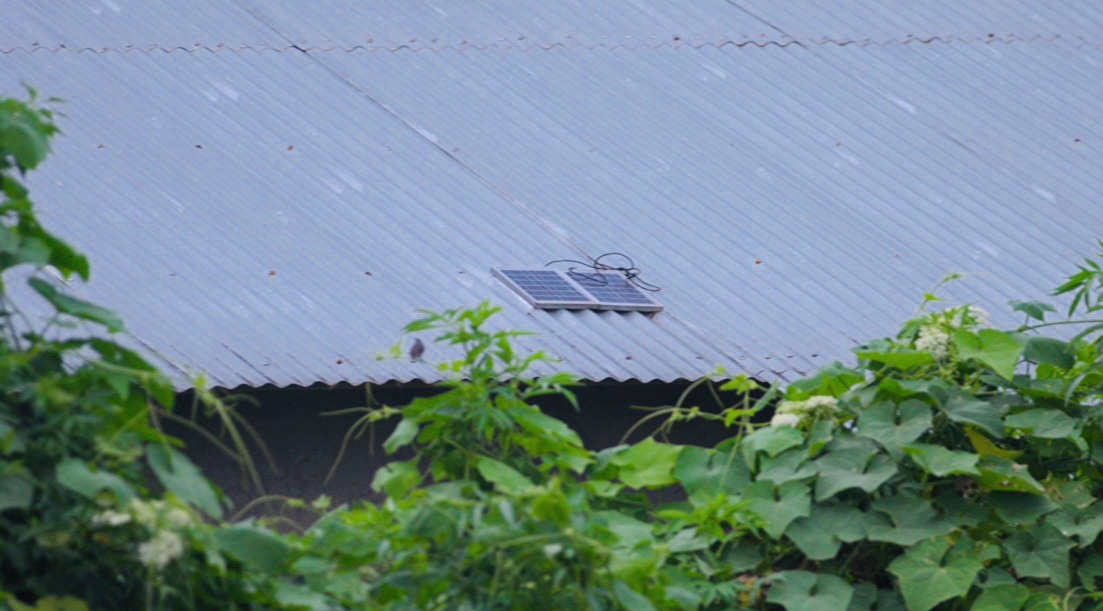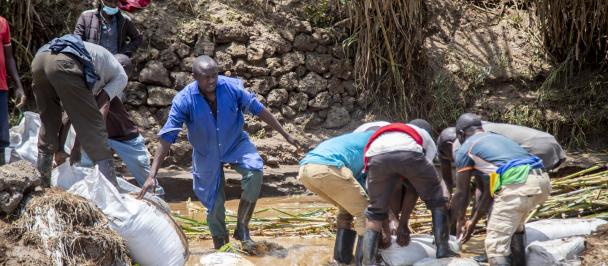By Immaculee Uwimana
Powering Progress: Clean Energy Solutions for Rwandan Households
July 26, 2023

Solar panel on the roof of one of the household beneficiaries in Musanze district.
As twilight embraces the world and darkness casts its gentle veil, Felicien Mbarushimana steps into his enchanting four-bedroom house to switch on the light. With a smile adorning his face, the 56-year-old father of five nods in contentment, bringing to life the welcoming aura of his cherished sitting room.
Though Mbarushimana is now excited, this was not the case a few years ago. Like many other homes in his neighbourhood, he relied entirely on kerosene lamp. If not handled with care, these lamps could pose a dangerous risk, leading to in-door pollution, which could potentially result in human health issues.
"We are now using solar energy systems to illuminate our homes, and I no longer have to spend money or walk long distances to charge my phone," he says, standing proudly in front of his home in Musanze District, in the Northern Province of Rwanda.

Felicien Mbarushimana enjoying the full lighting in his sitting room
Mbarushimana's transition from kerosene lamps to the warm embrace of solar power was made possible through a 5-year project implemented in collaboration with the Ministry of Environment, dubbed “Strengthening Capacities of the Environment and Natural Resources (ENR) Sector for Green Economy Transformation". It aims to enhance national and local capacities for sustainable management of environment and natural resources.
Lucie Mukeshimana is another champion from Musanze District who echoed similar sentiments. "I used to light kerosene lamps, which cost me about RWF 300 (0.3USD) every evening," she said. The introduction of solar power not only brought light into their lives but also brought financial relief.

Lucie Mukeshimana beaming with a smile as she enjoys solar power in her home
Mbarushimana and Mukeshimana are part of the over 1,000 households across Rwanda that have been equipped with solar panels, empowering them with clean and accessible energy.
Gone are the days of relying on the lamps that brought only fleeting illumination. The solar energy systems now grace their home with a steady and reliable source of light. No longer constrained by the limitations of traditional lighting, they can embrace the evenings with a newfound sense of comfort and security.
The impact of this transition reaches far beyond individual households. In the context of Rwanda's commitment to clean energy, the government has set forth policies to promote renewable solutions and energy efficiency. As part of the country’s updated Nationally Determined Contribution (NDC) to the Paris Agreement, Rwanda aims to reduce carbon emissions by 38% by 2030, with the energy sector playing a significant role in achieving this target.
Aligned with the country's Green Growth and Climate Resilience Strategy, the project’s efforts to extend and promote clean energy contribute to the Sustainable Development Goal 7 (SDG7). This global goal envisions affordable, reliable, sustainable, and modern energy for all. Through the provision of solar panels and the empowerment of communities, the project actively bridges the energy gap and fosters sustainable development in Rwanda.
The transition from candles to solar power not only illuminates homes but also ignites a spark of hope for a brighter and cleaner future. It showcases the power of collective action and partnership in driving positive change.
By embracing renewable energy, Rwandan communities are not only embracing a more sustainable way of life but also inspiring others to follow suit, to light the way towards a sustainable and energy-efficient tomorrow.

 Locations
Locations

